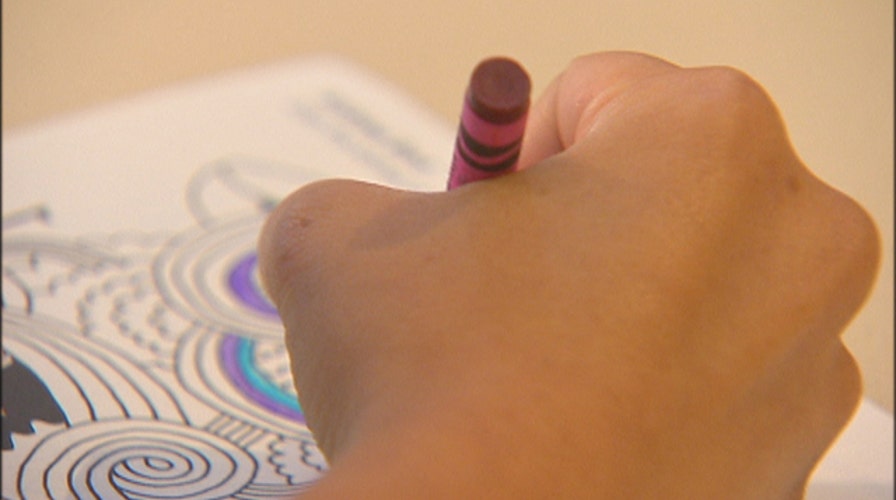Health benefits of coloring for adults
Coloring isn’t just for kids anymore. Turns out the favorite childhood pastime is gaining popularity with adults, and there’s a laundry list of health benefits like stress reduction and sharpening fine motor skills
When you’re stressed out, diving into a bag of chips or eating a sleeve of cookies might seem like the fastest way to feel better, and for good reason.
When stress kicks in, cortisol ramps up and makes you crave salty, sugary and fatty foods.
But the feeling is fleeting.
In fact, eating chocolate can make you happy, but the feeling disappears after just three minutes, a study in the journal Appetite found.
The good news is that with some simple strategies, you can find ways to feel better without raiding the pantry.
1. Take a mustard bath.
It sounds really strange but mustard baths, a concoction of mustard powder, baking soda and essential oils added to a warm bath, are a traditional remedy used in England for stress.
“Mustard is a warming agent so it works to relax your muscles and detoxify your body,” said Dr. Susan Albers, a clinical psychologist at the Cleveland Clinic and author of The New York Times-bestselling “50 More Ways To Soothe Yourself Without Food.”
2. Grab a coloring book.
Coloring books for adults are trendy right now and for good reason. Just like they do for kids, the books can help improve concentration and focus, provide a form of distraction and ease stress.
3. Visualize calm.
Research shows that guided imagery can immediately change our thoughts and restore a sense of calm, said Dr. Kathleen Hall, founder and CEO of The Mindful Living Network and The Stress Institute in Atlanta, Ga.
When you’re feeling stressed, imagine a real or fictional place that soothes you, or download a guided imagery app and watch your stress melt away.
4. Sleep.
If you’re overworked, overwhelmed or have young children, sleep can be hard to come by. Not to mention that stress alone can disrupt sleep and lead to insomnia.
Yet falling short on just a few hours can disrupt ghrelin, the “hunger hormone” that regulates appetite. Plus, without enough rest, “decision fatigue,” sets in and we’re not able to make the best food choices, Albers said.
Get into bed a half an hour earlier each night and aim for 7 to 9 hours, which the National Sleep Foundation recommends as optimal.
5. Breathe in and out.
Deep breathing is proven to help foster relaxation and calm. One way to do it is the “squeegee breath,” which Albers recommends.
Close your eyes and imagine a squeegee running from your head down to your feet. As you breathe out, visualize that your stress is colored water coming out of your feet. Then breathe in and imagine clean water washing over your body.
6. Get crafty.
Origami, the ancient Japanese art of paper folding, taps into the frontal lobe, the part of the brain that makes decisions and executes different functions, Albers said.
You’re not only focused and concentrating on something else, but the action can help you make better decisions about food, too.
7. Fill the void.
Instead of heading to the kitchen the minute stress hits, think about what you’re feeling and find an alternative way to deal with it. So if you’re angry, for example, take a kickboxing class or vent to a friend on FaceTime.
8. Repeat a positive affirmation.
When you’re stressed out, having a positive affirmation that you believe, such as “I’m strong,” or “I’m in control,” can immediately take your mind off eating, Hall said.
9. Listen to music.
People who are emotional eaters live in “shame spirals,” so even if they’re overweight, they continue to eat because they hate their own bodies, Hall said.
Putting on your favorite music, can help you pull yourself out of the negativity and make you feel playful, confident and relaxed— and less likely to reach for food.
10. Go ahead and eat.
As long as it’s not your main or only source of comfort, when all else fails sometimes it’s OK to give in and eat. The key however, is to sit down, take your time and be mindful of every bite so you don’t go overboard.

